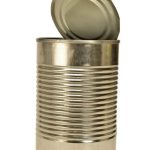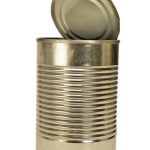So, are Volkswagens reliable? It’s not a straightforward answer. Some models are real champs, lasting for years with minimal fuss, while others… well, let’s just say they’ve given their owners some headaches. This article cuts through the hype and dives deep into the nitty-gritty of Volkswagen reliability, looking at specific models and what data shows about their performance. We’ll use information from trusted sources to help you understand the differences and give you practical advice whether you’re thinking of buying a VW, already own one, or are just curious. We’ll even show you how to keep your VW running smoothly for as long as possible.
Volkswagen Reliability: A Model-Specific Exploration
Volkswagen’s reliability is a complex topic, and understanding the nuances is key for potential buyers and current owners alike. The truth is, the brand’s reputation for reliability is a mixed bag, with some models proving exceptionally dependable, while others may require more frequent attention. Let’s explore the factors influencing Volkswagen reliability and how it varies across different models.
Expert Opinions and Data Discrepancies: Decoding Volkswagen Reliability Ratings
Several well-known sources analyze car reliability, and their findings on Volkswagens often vary. For example, one group might highlight the Golf and Jetta as reliable standouts, while another points to common problems like engine leaks or electrical issues across different models and years. Why the difference? These groups use different methods to collect and analyze their data. However, they all agree on one thing: a 2023 model is completely different from a 2003 model. Model year significantly impacts reliability ratings. That’s why doing your homework before buying is so important.
Volkswagen’s Model-Specific Reliability: Choosing the Right Vehicle for Your Needs
To help you navigate this, let’s look at a few popular VW models, keeping in mind that individual car history and maintenance play a huge role. This isn’t a guarantee, just a general idea based on what different sources have found. Remember, a well-maintained older car can be more reliable than a neglected newer one.
| Model | Reliability Assessment (Based on Various Sources) | Common Concerns |
|---|---|---|
| Golf | Generally considered reliable | Relatively few major issues reported |
| Jetta | Similar to the Golf, generally positive reports | Similar to the Golf |
| GTI | More variable reliability, often lower ratings | Engine, electronics, and performance parts, turbocharger issues |
| Passat (Pre-2007) | Often reported as less reliable | A wider range of mechanical and electrical problems, oil leaks, transmission issues |
| Passat (2007+) | Improvement seen, but still not top-rated | Some electronic and mechanical issues persist, carbon buildup |
| Tiguan | Varies by year, some models have better ratings than others | Turbocharger failure, electrical problems, infotainment system glitches |
| Atlas | Lower reliability ratings, especially in early years | Faulty fuel injectors, excessive engine noise, transmission problems, infotainment system issues |
This table offers a general overview, not a definitive judgment. Always research the specific model year you’re considering.
Actionable Steps for Volkswagen: Smart Strategies for Buyers and Owners
For Potential VW Buyers:
- Comprehensive Research: Don’t just rely on one source. Check several different reliability reports, owner forums, and independent reviews to get a more well-rounded view on the model and year you’re interested in. Look beyond overall scores and examine what specific problems have been reported.
- Crucial Pre-Purchase Inspection: Before you buy a used VW, get a thorough inspection from a trusted mechanic who specializes in European cars. This could save you from costly repairs down the line. Pay special attention to potential oil leaks, transmission issues, and electrical problems.
- Understanding Warranty Options: Consider an extended warranty, especially for older models or those with a more questionable reliability history. Read the fine print carefully to understand what’s covered and what’s not.
- Check the Car’s History: Obtain a vehicle history report (like Carfax or AutoCheck) to check for accidents, title issues, and maintenance records.
For Current VW Owners:
- Prioritizing Preventative Maintenance: Regular maintenance is essential. Follow the recommended service schedule religiously to keep your VW running smoothly. Use high-quality parts and fluids that meet Volkswagen’s specifications.
- Addressing Warning Signs: Don’t ignore warning lights or unusual noises. Address any issues promptly to avoid more extensive repairs later on. Ignoring a small problem can lead to a much larger and more expensive repair down the road.
- Establishing a Relationship with a Qualified Mechanic: Building a relationship with a mechanic who specializes in Volkswagens can be extremely beneficial. They’ll be more familiar with common issues and often more efficient at resolving them. Look for a shop with certified technicians and a good reputation.
- Be Proactive with Common Issues: Research common problems for your specific model and year. For example, if you own a VW with a direct-injection engine, consider regular carbon cleaning to prevent buildup.
Making Informed Choices: The Bottom Line on Volkswagen Reliability
So, are Volkswagens reliable? The answer is: it depends. Some models and years have better reputations than others. By doing your research, choosing wisely, and keeping up with maintenance, you can significantly improve your chances of a positive ownership experience. Don’t rely on generalizations – dig deeper into specific models and years to make an informed decision. Remember, even the most reliable cars can have problems, and a little proactive care goes a long way.
How to Avoid Costly Repairs on a Used Volkswagen Passat
Key Takeaways:
- Certain Volkswagen Passat model years are significantly more reliable than others.
- Thorough pre-purchase inspections are crucial.
- Regular maintenance dramatically reduces the risk of expensive repairs.
- Understanding common Passat problems helps you make informed decisions.
- Addressing issues early can prevent them from escalating into major, costly repairs.
Volkswagen Passat Reliability: A Year-by-Year Analysis
So, you’re thinking about buying a used Volkswagen Passat? They’re comfortable, stylish, and offer a bit of German engineering flair. But, Volkswagen reliability isn’t consistently stellar across all model years. Some years are better than others, so knowing which years to target and which to avoid is important.
Based on analysis from various automotive sources, certain years stand out for their reliability (or lack thereof). The 2004-2005 (5th generation), 2010-2011 (6th generation facelift) and 2018-2022 (8th generation) models generally receive positive reliability reviews. In contrast, the 2002-2003, 2006-2007, and 2012-2017 models have a greater reputation for issues—often engine, electrical, or transmission problems. The 2012-2017 models, in particular, have been known for excessive oil consumption, especially those with the 1.8T and 2.0T engines.
Always check for recalls and Technical Service Bulletins (TSBs) related to the specific model year you are considering. These can provide valuable insights into known problems and potential fixes.
Maximizing Vehicle Longevity: Preventative Maintenance Strategies for Your Passat
Even the best model years can develop problems without proper maintenance. Regular servicing is key to avoiding catastrophic failures. What should you look for?
- Oil Changes: Stick to the recommended schedule. Use the correct type of oil and filter specified for your Passat’s engine.
- Timing Belt/Chain: These are critical components. Neglecting them can lead to engine damage. Replace the timing belt at the recommended interval. If your Passat has a timing chain, listen for any rattling noises, which could indicate wear or damage.
- Electrical System: Inspect for worn wires, corroded connections, and faulty components. Address any electrical issues promptly to prevent further damage.
- Transmission Fluid: Regular fluid changes extend transmission life. Use the correct type of transmission fluid specified for your Passat’s transmission.
- Coolant Flushes: Regular coolant flushes prevent corrosion and overheating.
- Brake System: Inspect brake pads, rotors, and fluid regularly. Replace worn components promptly.
- Tire Maintenance: Maintain proper tire pressure and rotate tires regularly to ensure even wear.
Safeguarding Your Investment: Key Steps When Buying a Used Passat
Before you buy, take these steps:
- Research: Scrutinize the specific model year. Look for common issues reported by owners. Check online forums, reviews, and reliability ratings.
- Pre-Purchase Inspection: A mechanic’s inspection is essential. It can save you thousands. Choose a mechanic who specializes in European cars.
- Check the History: Review maintenance records and look for any accident reports. Look for gaps in the maintenance history.
- Test Drive Thoroughly: Pay attention to any unusual noises, vibrations, or behaviors. Test all of the car’s features, including the air conditioning, infotainment system, and power windows.
- Negotiate: Use your
- How to Produce Free Energy for Your Home - February 11, 2026
- How to Generate Electricity for Free at Home - February 10, 2026
- How To Produce Free Electricity By Generating Your Own Power - February 9, 2026
















